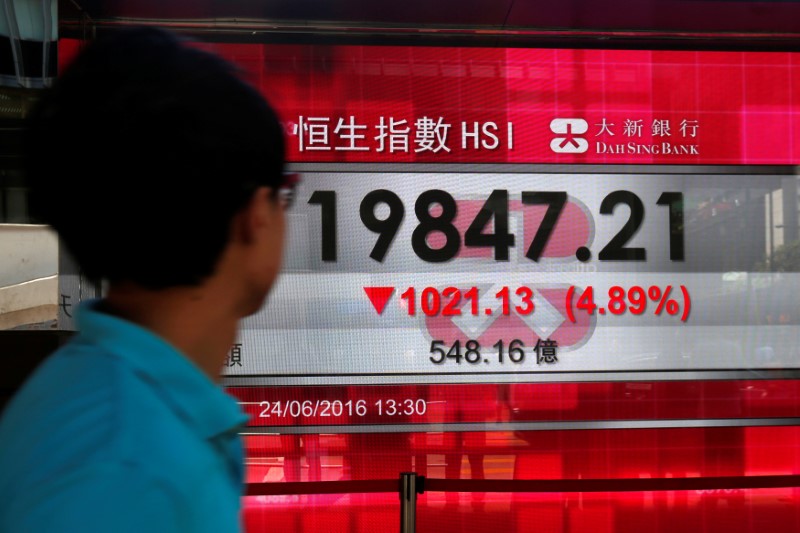By Ambar Warrick
Investing.com-- Most Asian stock markets fell on Friday as comments from U.S. regulators failed to entirely quell fears of a banking crisis, while concerns over slowing economic growth also dented sentiment.
China’s Shanghai Shenzhen CSI 300 and Shanghai Composite indexes fell 0.3% and 0.5%, respectively, as sentiment soured towards property stocks after beleaguered developer China Evergrande Group's (HK:3333) debt restructuring plan failed to impress investors.
Hong Kong’s Hang Seng index was also held back by losses in property stocks, trading 0.2% lower. But strength in local technology stocks saw the Hang Seng vastly outperform its regional peers this week with a near 3% jump.
South Korea’s KOSPI fell 0.6%, while Australia’s ASX 200 index shed 0.2%. Australian shares of payments firm Block Inc (ASX:SQ2) plummeted 20% after short-seller Hindenburg Research alleged that the firm misled investors over its customer metrics.
Losses in Japan’s Nikkei 225 were somewhat limited, with the index losing 0.2% after data showed consumer price index inflation eased as expected in February.
While a bulk of the drop was driven by government subsidies, it also puts less pressure on the Bank of Japan to immediately tighten policy.
India’s Nifty 50 and BSE Sensex 30 indexes fell about 0.1% each.
Broader Asian stocks crept lower as a mixed overnight session on Wall Street provided middling cues. U.S. bank stocks saw another round of selling, even as Treasury Secretary Janet Yellen sought to reassure investors over the stability of the banking system.
Dovish signals from the Federal Reserve earlier this week pushed up concerns over the impact of a banking breakdown, as the central bank hinted at a potential pause in its rate hikes to avoid economic pressure.
The Fed also slightly downgraded its GDP forecast for the year, pointing to more economic headwinds from high inflation and interest rates.
Asian stocks were dented by weakening risk appetite, as investors feared a greater fallout from the collapse of several U.S. banks this month.
But the prospect of a less hawkish Fed saw most regional indexes headed for weekly gains, while emergency liquidity measures also undermined a year of monetary tightening by the U.S. central bank.
